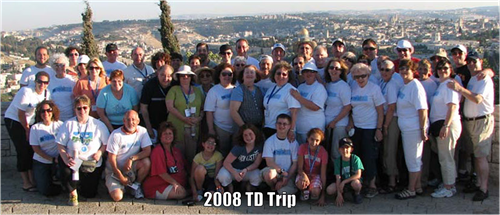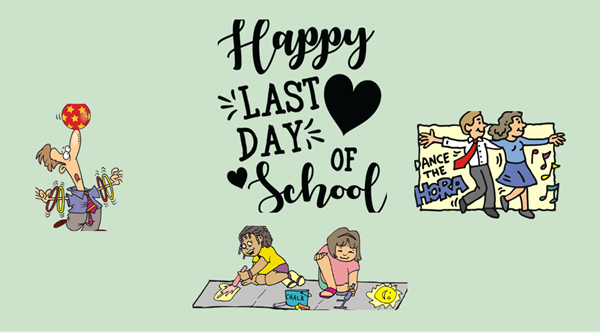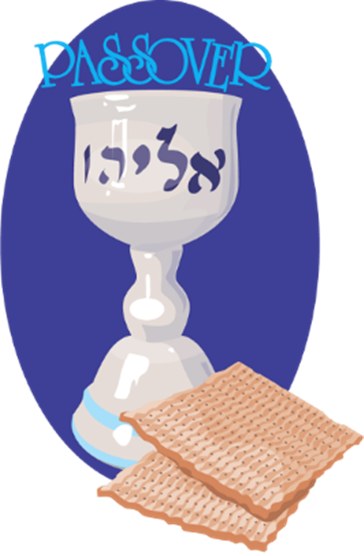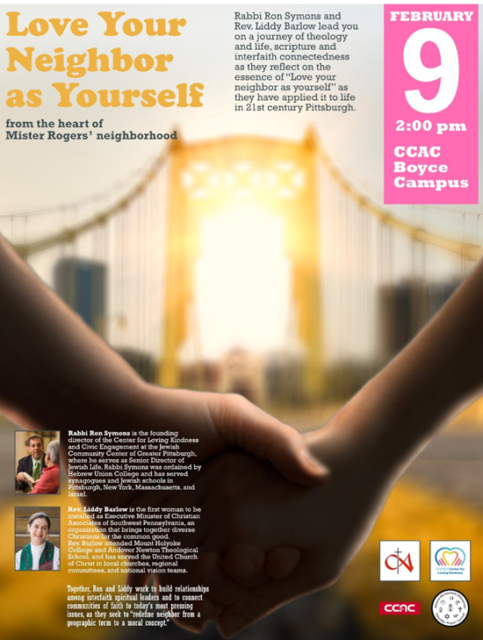
Added September 2022

Eric Lidji Presents: Jewish Pittsburgh in Five Roads
Sunday, September 18 at 10 a.m.
In-Person and On Zoom at www.templedavid.org/athome
The collapse of the Fern Hollow Bridge has highlighted the way a single piece of infrastructure can impact daily life. This presentation will examine the way local transportation corridors have influenced Jewish migration throughout Allegheny County. We’ll look at five pieces of infrastructure: the Pennsylvania Canal, Bigelow Boulevard, the Boulevard of the Allies, the Liberty Tunnel, and the Parkway East.
Eric Lidji is Director of the Rauh Jewish Archives at the Heinz History Center and curates its website “The Jewish Encyclopedia of Western Pennsylvania,” and hosts its podcast “The Cornerstone.” He writes extensively about the Jewish history of Western Pennsylvania for local publications. He is the author of The Seventeenth Generation: The Lifework of Rabbi Walter Jacob and is a co-editor of the anthologies Her Deeds Sing Her Praise and Bound In The Bond Of Life.

Over the course of nine months, we will compare religions including Catholicism, Protestantism, Islam, Baha’i Faith, Buddhism, and Hinduism to Judaism using original texts and often hearing directly from representatives of those faiths. Optional articles to read and questions for consideration will be sent in advance of each class.
Register for either Sunday mornings (11:15 a.m.) or Wednesday evenings (7:30 p.m.)
and as long as there are at least 6 people enrolled per day,
if you have a conflict, you can switch to the other date that month.

Fees:
$36 for first person in a Temple-member household
$44 for first person in a non-member household
$11 per each additional person (member on non-member)
Questions? Please contact Rabbi Symons.
Download the registration form:
www.templedavid.org/bulldocs/5782/2022nine.pdf
Added August 2022
ALLEC Presents
Separation of Church and State: To Be or Not to Be?
By Duquesne Law School Professor Bruce Ledewitz
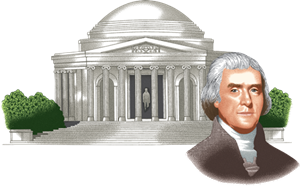
Sunday, August 7 at 10 a.m.
A Light Breakfast Will Be Served at 9:30 a.m.
RSVP by Thursday, August 4 to Sharon Saltzman
at sharons@templedavid.org
The new conservative majority on the Supreme Court is clearly moving aggressively to protect the individual practice of religion as well as promote government support for religious institutions.
There are two reasons that I do not consider this trend to be a problem. First, and most fundamentally, religion is not what it used to be. We are building the first ever secular civilization. But secularism has not solved the problem of meaning in human life. We secularists have to stop thinking of religion as a threat and start thinking of it as a resource.
The second reason is that, although it is true that these religion decisions distort the words and intentions of the framers of the Constitution, unless one is an originalist, which I am not, there is no reason to care about that. Times change and today religious people are often the ones who are out of step culturally and thus need judicial protection. Furthermore, religious institutions might not survive if cut off from government support, which was not the case in the 18th century.
I should also note that two other concerns that people raise may reflect misunderstandings of the Court’s decisions. The Supreme Court in the Kennedy football coach case did not sanction coercion of students of minority religious beliefs or nonbelief. The Court majority may have misread the record, but they did not change the law that no form of religious coercion no matter how slight will be permitted.
Nor is the Court imposing traditional religious values on the culture. Dobbs, for example—the abortion case—did not restrict abortion in any way. It is true that access to abortion will now be left to political decision, but, over time, there is no reason to think that women voters, who comprise the majority in every state, will permit women to be oppressed by harsh anti-abortion laws.
Bruce Ledewitz is professor of law and Adrian Van Kaam C.S.Sp. Endowed Chair in Scholarly Excellence at Duquesne Law School where he specializes in Law and Religion, Jurisprudence, and Pennsylvania and federal Constitutional Law.
Ledewitz writes and speaks widely on a variety of legal and religious topics, in both legal journals and popular media. He is the author of four books: American Religious Democracy: Coming to Terms with the End of Secular Politics (2007), Hallowed Secularism: Theory, Belief, and Practice (2009), Church, State, and the Crisis in American Secularism (2011) and The Universe Is On our Side: Restoring Faith in American Public Life (2021). He is a regular op-ed contributor to the Pennsylvania Capital-Star as well as his own blog, Hallowed Secularism. Ledewitz received his undergraduate degree from Georgetown University School of Foreign Service and his J.D. from Yale Law School.
Book Discussion
The Last Watchman of Old Cairo
by Michael David Lukas
Online and In-Person Discussion led by Rabbi Barbara Symons
Wednesday, August 17 at 10 a.m. and 7:30 p.m.
Copies are available at the temple.
Online via www.templedavid.org/athome
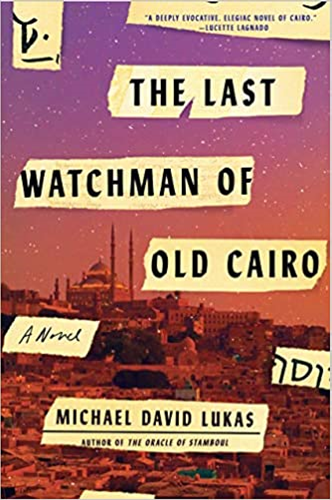
From amazon.com: Joseph, a literature student at Berkeley, is the son of a Jewish mother and a Muslim father. One day, a mysterious package arrives on his doorstep, pulling him into a mesmerizing adventure to uncover the centuries-old history that binds the two sides of his family.
From the storied Ibn Ezra Synagogue in Old Cairo, where generations of his family served as watchmen, to the lives of British twin sisters Agnes and Margaret, who in 1897 leave Cambridge on a mission to rescue sacred texts that have begun to disappear from the synagogue, this tightly woven multigenerational tale illuminates the tensions that have torn communities apart and the unlikely forces that attempt to bridge that divide.
In this “wonderfully rich” novel from the author of the internationally bestselling The Oracle of Stamboul, a young man journeys from California to Cairo to unravel centuries-old family secrets.—San Francisco Chronicle
“A beautiful, richly textured novel, ambitious and delicately crafted, The Last Watchman of Old Cairo is both a coming-of-age story and a family history, a wide-ranging book about fathers and sons, religion, magic, love, and the essence of storytelling. This book is a joy.”—Rabih Alameddine, author of the National Book Award finalist An Unnecessary Woman.
“Brilliant.”—The Jerusalem Post
“Lyrical, compassionate and illuminating.”—BBC
WINNER OF: THE AMERICAN LIBRARY ASSOCIATION’S SOPHIE BRODY AWARD; THE NATIONAL JEWISH BOOK AWARD IN FICTION; THE SAMI ROHR PRIZE FOR JEWISH LITERATURE; Named One of the Ten Best Books of the Year by the BBC; Longlisted for the Northern California Independent Booksellers Association Fiction Prize; A Penguin Random House International One World, One Book Selection; Honorable Mention for the Middle East Book Award.
Also from amazon.com: About the author: Michael David Lukas has been a Fulbright Scholar in Turkey, a night-shift proofreader in Tel Aviv, and a waiter at the Bread Loaf Writers’ Conference in Vermont. A graduate of Brown University and the University of Maryland, he is a recipient of scholarships from the National Endowment for the Arts, New York State Summer Writers’ Institute, Squaw Valley Community of Writers, and Elizabeth George Foundation. His writing has appeared in VQR, Slate, National Geographic Traveler, and Georgia Review. He lives in Oakland, California, less than a mile from where he was born. When he’s not writing he teaches creative writing to third and fourth graders at Thornhill Elementary School.
Added July 2022
Temple David Visits the Biblical Garden at Rodef Shalom
Sunday, July 10 at 11 a.m.
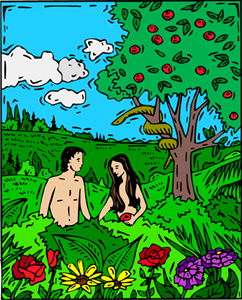
Please join Temple David for a docent-led Biblical Garden Tour at Rodef Shalom Congregation.
Lunch will follow at Aladdin’s Eatery (5878 Forbes Avenue, Squirrel Hill) for those who wish to attend.
The exhibit will focus on the multiple meanings of healing, from the spiritual comfort the Garden brings to visitors, to the medicinal qualities of plants mentioned in the Torah, the Quran, and the New Testament.
Please contact Sharon Saltzman at sharons@templedavid.org for more information and to RSVP.
Added June 2022
Book Discussion in Celebration of Pride Month:
What We Will Become: A Mother, a Son,
and a Journey of Transformation
by Mimi Lemay
Thursday, June 23 at 10 a.m. and 7 p.m.
In-Person and Online
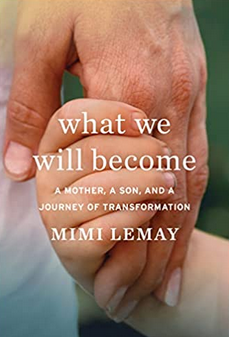
Online via www.templedavid.org/athome
(From amazon.com) A mother’s memoir of her transgender child’s odyssey, and her journey outside the boundaries of the faith and culture that shaped her.
From the age of two-and-a-half, Jacob, born “Em,” adamantly told his family he was a boy. While his mother Mimi struggled to understand and come to terms with the fact that her child may be transgender, she experienced a sense of déjà vu—the journey to uncover the source of her child’s inner turmoil unearthed ghosts from Mimi’s past and her own struggle to live an authentic life.
Mimi was raised in an ultra-Orthodox Jewish family, every aspect of her life dictated by ancient rules and her role as a woman largely preordained from cradle to grave. As a young woman, Mimi wrestled with the demands of her faith and eventually made the painful decision to leave her religious community and the strict gender roles it upheld.
Having risen from the ashes of her former life, Mimi was prepared to help her son forge a new one — at a time when there was little consensus on how best to help young transgender children. Dual narratives of faith and motherhood weave together to form a heartfelt portrait of an unforgettable family. Brimming with love and courage, What We Will Become is a powerful testament to how painful events from the past can be redeemed to give us hope for the future.

Added May 2022
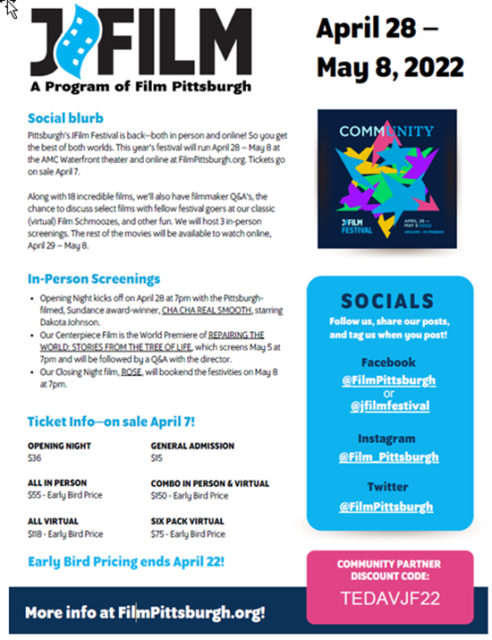
Details and Registration:
Virtual Speaker Event with Isabel Wilkerson
Monday, May 9 at 7:30 p.m.
Viewable Online Until May 18
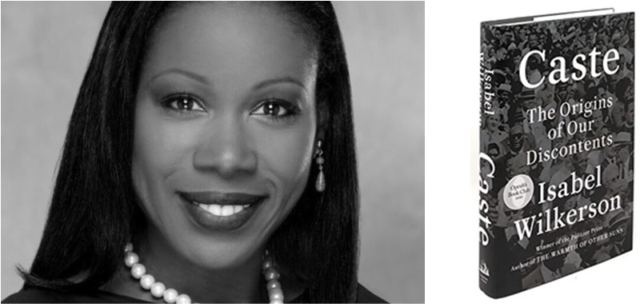
In her ground-breaking book Caste, the Pulitzer Prize-winning author of The Warmth of Other Suns, Isabel Wilkerson, explores how America—today and throughout its history—is shaped by a hidden caste system, a rigid hierarchy of human rankings.
The video link for the live-streamed event will be e-mailed to all ticket holders on the day of the lecture.
The captioned video will be available to view until May 18
Register AND get your copy of Caste here:
https://form.jotform.com/220814331616145
NEW!
Open Discussion Group:
Thursday, May 19 at 7 p.m.
https://us02web.zoom.us/j/86797250130
Another Very Special Book Discussion!
In Two-Parts—Sundays May 22 & 29 at 1 p.m.
Via www.templedavid.org/athome
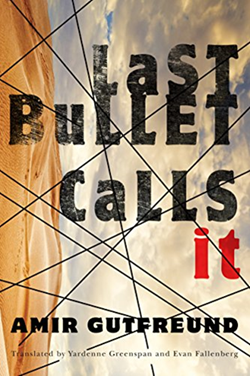
Join us for a two-part book discussion with Israelis from our sister city Karmiel-Misgav. It will be about the book Last Bullet Calls It by Israeli author Amir Gutfreund, z’’l (translated by Yardenne Greenspan and Evan Fallenberg). The discussions, co-led by Rabbi Symons and an Israeli will be on Sundays May 22 and 29 at Noon via Zoom.
Temple David has copies of the book available to be borrowed. The best way to support Israel, of course, is to purchase the book and then share it.
From amazon.com: In this award-winning mystery by one of Israel’s best-loved authors, a plot of vengeance reveals deeper truths about the complexity of being human.
Coupon-clipping police superintendent Jonah Merlin thinks he has an open-and-shut case on his hands after the body of a beautiful woman is found discarded in a run-down building in Tel Aviv. All evidence points to two suspects, but finding them will require unorthodox methods to decode the cryptic words sprayed at every crime scene.
As the body count rises, graffiti expert Rai Zitrin and precocious seventeen-year-old Zoe Navon agree to help Merlin uncover the connection between the killing spree and the words of Polish writer Bruno Schulz, who was murdered by Nazis seventy years ago.
Why would a serial killer quote the famous author’s poetic words of unrequited love? The search leads this unlikely trio on a race against the clock to solve the case before the killer has the last laugh…and the last bullet.
Amir Gutfreund, z’’l, was born in Haifa in 1963. After studying applied mathematics at the Technion, he joined the Israeli Air Force, where he worked in the field of mathematical research. The author of five novels and a collection of short stories, he received the Buchman Prize from the Yad Vashem Institute in 2002, the Sapir Prize in 2003, the Sami Rohr Choice Award from the Jewish Book Council in 2007, and the Prime Minister’s Award in 2012. Last Bullet Calls It was awarded the 2015 Ramat-Gan Prize for Literature. Gutfreund lived with his family in the Galilee in northern Israel. In November 2015, at the age of fifty-two, he passed away after a brave battle with cancer.
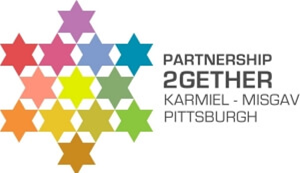
Thank you to Partnership2Gether from the
Jewish Federation of Pittsburgh
for helping to arrange this.
https://jewishpgh.org/partnership2gether/
Added March 2022
American Antisemitism: An Old Problem Returns
With Professor Pamela Nadell
On-Line on Thursday, March 10 at 7:30 p.m.
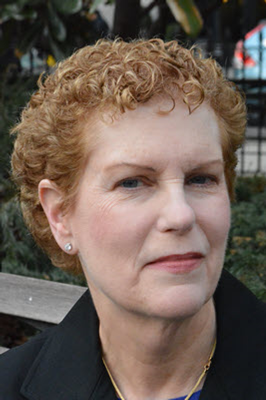
Americans were stunned when gunmen murdered Jews in synagogues here in Pittsburgh and Poway, California. American Jews feel threatened; our communal institutions appear under attack. This violence stands atop a long history of American antisemitism that most people do not know. Three years since the attack in our own backyard, we turn to the past to help us grapple with the antisemitism of our own moment in time.
Professor Pamela Nadell holds the Patrick Clendenen Chair in Women’s and Gender History at American University where she directs the Jewish Studies Program and received the university’s highest award, Scholar/Teacher of the Year. Her books include Women Who Would Be Rabbis: A History of Women’s Ordination, 1889-1985. A past president of the Association for Jewish Studies and the recipient of the American Jewish Historical Society’s Lee Max Friedman Award for distinguished service, her consulting work for museums includes the National Museum of American Jewish History and the Library of Congress.
Her recent book, America’s Jewish Women: A History from Colonial Times to Today (W.W. Norton) won the 2019 National Jewish Book Award’s Jewish Book of the Year. She is currently writing a book about the history of American antisemitism. Her articles on the subject have appeared in The Washington Post and The Conversation, and she has appeared on C-SPAN and PBS on the topic.
Co-sponsored by:
Beth El Congregation of the South Hills
Congregation B’nai Abraham
Temple David
Temple Sinai
Tree of Life
The Zoom Link will be sent by E-Mail
Added February 2022
Cook with an Israeli Chef from Your Own Kitchen via Zoom
Sunday, February 6 at Noon (7 p.m. in Karmiel-Misgav, Israel)
UPDATE: REGISTRATION IS REQUIRED AT
https://tinyurl.com/jwmyab8x
Galilean Cooking Class with Chef Paul Nirens from Galileat
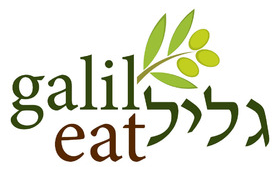
Galileat (www.galileat.com) specializes in culinary experiences in the Galilee and is owned and operated by Paul Nirens. In his words: I have lived in the Galilee for almost 30 years. In that time, I have cultivated relationships with many people living in the area. These relationships allow me to offer true grassroots cultural experiences, based around food, working in co-operation with those that live in the area. I believe that in order to eat properly in the Galilee, to encounter the authentic, real-life atmosphere of Israel’s green North, it must be done with and by locals. A Galileat adventure allows an in-depth view of the real Israel. If it’s edible and from the Galilee, then I know about it. I want to share that experience with you.
In a fun online cooking workshop, we will learn to prepare Middle Eastern Style Stuffed Cabbage and Cherry Tomato Tabouli Salad.
In the Galilee, stuffed and rolled cabbage leaves are small and delicate, unlike their European namesakes that are much larger. We will also learn to prepare a modern tabouli salad, which is based on cherry tomatoes and lots of greens, with only a tiny amount of bulgur wheat (which may be omitted, if we want it gluten-free).
The event will be on Zoom in the form of an interactive, online cooking workshop, where the participants receive an ingredient list beforehand and cook along with me, real time. Both dishes are very Israeli Galilean and can be easily reproduced at home in the USA.
Preparing both dishes, will take between 45-60 minutes, including some intro time at the beginning and some Q&A at the end.
QUESTIONS? Please contact Debbie Swartz at dswartz@jfedpgh.org
Rolled Cabbage Leaves Ingredients
1 large cabbage
4 tablespoons fresh lemon juice
1 clove garlic, crushed
1/2 teaspoon cumin
Rice mixture: 1.5 cups rice, medium-grain rice, soaked in water for half an hour
1 tomato
1 onion
2 teaspoon cinnamon
2 teaspoons Baharat*
1 teaspoon ground black pepper
I heaping teaspoon salt
½ cup top quality olive oil
*Temple David will supply this Druze spice blend; just stop by beforehand
Cherry Tomato Tabouli Ingredients
1 lb. cherry tomatoes
6 stalks spring onions (scallions)
1/2 bunch fresh parsley
1/4 bunch fresh mint
3 tablespoons fine bulgur wheat
1/2 teaspoon sweet paprika
(1/4 teaspoon hot paprika)
1/2 cup freshly squeezed lemon juice
1/4 cup top quality olive oil
A Very Special Book Discussion!
In Two-Parts—Sundays February 20 & 27 at Noon
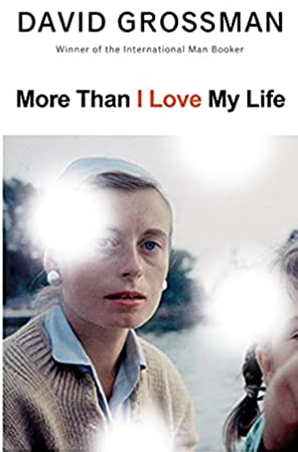 Join us for a two-part book discussion with Israelis from our sister city Karmiel-Misgav. It will be about the book More Than I Love My Life by Israeli author David Grossman (translated by Jessica Cohen). The discussions, co-led by Rabbi Symons and an Israeli will be on Sundays February 20 and 27 at Noon via Zoom.
Join us for a two-part book discussion with Israelis from our sister city Karmiel-Misgav. It will be about the book More Than I Love My Life by Israeli author David Grossman (translated by Jessica Cohen). The discussions, co-led by Rabbi Symons and an Israeli will be on Sundays February 20 and 27 at Noon via Zoom.
To obtain the book: Temple David has a few copies and others are available by e-mailing our Monroeville Public Library librarian Pam Bodziock at bodziockp@einetwork.net, or by calling the library and asking for Pam. The best way to support Israel, of course, is to purchase the book and then share it.
Because we want to have a good discussion in which we can hear all voices, we are limiting participation, so please either let Rabbi Symons or Beverly know that you would like to join in. Remember: the commitment is for both sessions.
If there is a waiting list, we will do our best to include everyone or to create a second two-part series.
From amazon.com: More Than I Love My Life is the story of three strong women: Vera, age ninety; her daughter, Nina; and her granddaughter, Gili, who at thirty-nine is a filmmaker and a wary consumer of affection. A bitter secret divides each mother and daughter pair, though Gili—abandoned by Nina when she was just three—has always been close to her grandmother.
With Gili making the arrangements, they travel together to Goli Otok, a barren island off the coast of Croatia, where Vera was imprisoned and tortured for three years as a young wife after she refused to betray her husband and denounce him as an enemy of the people. This unlikely journey—filtered through the lens of Gili’s camera, as she seeks to make a film that might help explain her life—lays bare the intertwining of fear, love, and mercy, and the complex overlapping demands of romantic and parental passion.
More Than I Love My Life was inspired by the true story of one of David Grossman’s longtime confidantes, a woman who, in the early 1950s, was held on the notorious Goli Otok (“the Adriatic Alcatraz”). With flashbacks to the stalwart Vera protecting what was most precious on the wretched rock where she was held, and Grossman’s fearless examination of the human heart, this swift novel is a thrilling addition to the oeuvre of one of our greatest living novelists, whose revered moral voice continues to resonate around the world.
DAVID GROSSMAN was born in Jerusalem. He is the author of numerous works of fiction, nonfiction, and children’s literature. His writing has appeared in The New Yorker and has been translated into more than forty languages. He is the recipient of many prizes, including the French Chevalier de l’Ordre des Arts et des Lettres, the Buxtehuder Bulle in Germany, and the Man Booker International Prize.
He lives in Jerusalem.
Thank you to Partnership2Gether from the
Jewish Federation of Pittsburgh
for helping to arrange this.
https://jewishpgh.org/partnership2gether/

Added December 2021
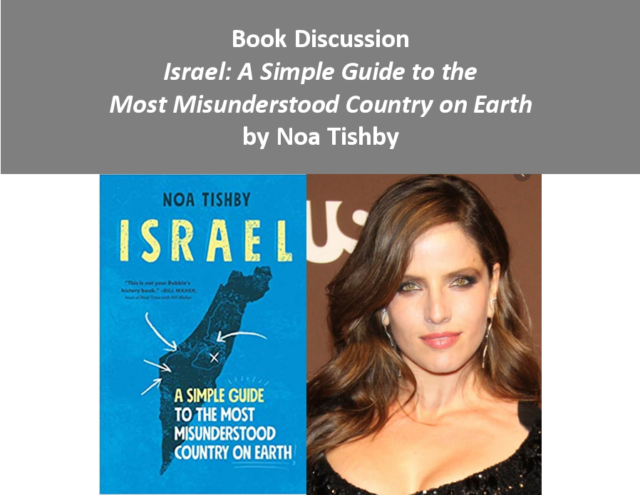
Discussions led by Rabbi Barbara Symons
Online & In-Person: Thursday, December 2 at 10 a.m.
In-Person: Sunday, December 12 at 10 a.m.
Please visit www.templedavid.org/athome for the links
From amazon.com: Israel. The small strip of arid land is 5,700 miles away but remains a hot-button issue and a thorny topic of debate. But while everyone seems to have a strong opinion about Israel, how many people actually know the facts.
Offering a fresh, 360-degree view, Tishby brings her “passion, humor, and deep intimacy” (Yossi Klein Halevi, New York Times bestselling author of Letters to My Palestinian Neighbor) to the subject, creating an accessible and dynamic portrait of a tiny country of outsized relevance. Through bite-sized chunks of history and deeply personal stories, Tishby chronicles her homeland’s evolution, beginning in Biblical times and moving forward to cover everything from WWI to Israel’s creation to the disputes dividing the country today. Tackling popular misconceptions with an abundance of facts, Tishby provides critical context around headline-generating controversies and offers a clear, intimate account of the richly cultured country of Israel.
“In a funny, surprising, and straightforward voice, Noa Tishby rolls the entire history of Israel into a blunt and insightful read. The perfect anti-textbook for anyone who slept through class, this is not your Bubbie’s history book.”
—Bill Maher, host of Real Time with Bill Maher
About the author: Actress, producer, writer, and activist Noa Tishby was born and raised in Tel Aviv. She served two and a half years in the Israeli army before she landed a starring role on the nation’s highest-rated prime time drama Ramat Aviv Gimmel. She became a household name, appearing in numerous TV shows, films, theater productions, and national fashion campaigns, before moving to Los Angeles, where she sold the Israeli TV show In Treatment to HBO, making history as the first Israeli television show to become an American series. She coproduced over 150 episodes, which earned a Peabody Award and twelve Emmy and Golden Globe nominations. A passionate political activist, Tishby founded the nonprofit “Act for Israel,” Israel’s first online advocacy organization, and has become widely known as Israel’s unofficial ambassador.

Online Discussions led by Rabbi Barbara Symons
Thursday, December 9 at 10 a.m. and 7:30 p.m.
Please visit www.templedavid.org/athome for the links
From amazon.com: A young bride shuts herself up in a bedroom on her wedding day, refusing to get married. In this moving and humorous look at contemporary Israel and the chaotic ups and downs of love everywhere, her family gathers outside the locked door, not knowing what to do. The bride’s mother has lost a younger daughter in unclear circumstances. Her grandmother is hard of hearing, yet seems to understand her better than anyone. A male cousin who likes to wear women’s clothes and jewelry clings to his grandmother like a little boy. The family tries an array of unusual tactics to ensure the wedding goes ahead, including calling in a psychologist specializing in brides who change their mind and a ladder truck from the Palestinian Authority electrical company. The only communication they receive from behind the door are scribbled notes, one of them a cryptic poem about a prodigal daughter returning home. The harder they try to reach the defiant woman, the more the despairing groom is convinced that her refusal should be respected. But what, exactly, ought to be respected? Is this merely a case of cold feet? A feminist statement? Or a mourning ritual for a lost sister? This provocative and highly entertaining novel lingers long after its final page.
About the author: Matalon was born in Ganei Tikva, Israel, in 1959 to a family of Egyptian-Jewish descent. She studied literature and philosophy at Tel Aviv University.
Matalon has worked as a journalist for Israel TV and for the daily Haaretz, covering Gaza and the West Bank during the First Intifada. She has also worked as a critic and book reviewer for Haaretz. At present, she is senior lecturer in Hebrew and comparative literature at Haifa University and teaches creative writing there as well as at the Sam Spiegel Film School in Jerusalem. Matalon is a member of the Forum for Mediterranean Culture at the Van Leer Institute. Two of her novels have been bestsellers in Israel, and her children’s story, A Story that Begins with a Snake’s Funeral, has been made into a movie.
Matalon has received the Prime Minister’s Prize (1994), the prestigious Bernstein Prize (2009), the Neuman Prize (2010), the Prix Alberto-Benveniste (France, 2013) for The Sound of Our Steps and the EMET prize (2016). In 2010, she received an Honorary Doctorate from the Hebrew University of Jerusalem.
Added November 2021
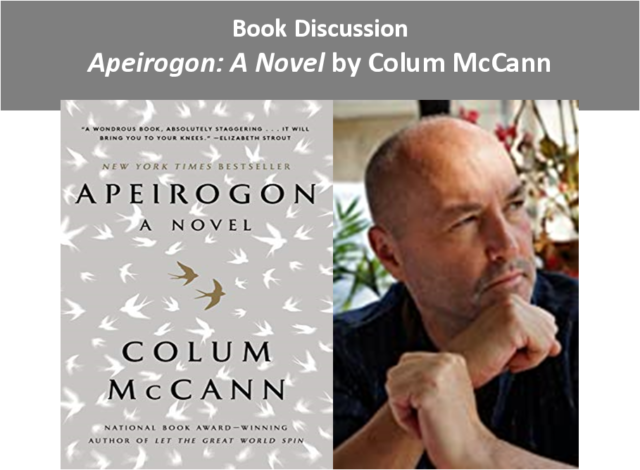
Online Discussions
led by Rabbi Barbara Symons
Thursday, November 4 at 10 a.m. and 7:30 p.m.
Please visit www.templedavid.org/athome for the links
From amazon.com: An Amazon Best Book of February 2020: Colum McCann’s 2009 novel, Let the Great World Spin, was a kaleidoscopic tale of New Yorkers in the 1970s that became an instant bestseller, won a National Book Award, and was named an Amazon Best Book of the Year, among many other honors. Ten years later, he has pushed the limits of kaleidoscopic with Apeirogon. The definition of the title is a shape with a countably infinite number of sides, and the book lives up to its meaning. In Apeirogon, McCann unfurls the story of two fathers, one Palestinian and one Israeli, who have both lost their daughters to the violence that surrounds them. Over the course of the day, these two men’s lives intertwine as they attempt to use their grief as a weapon for peace. Told in one thousand and one short vignettes, McCann flashes from the present to the past, sharing the lives of these men, the lives of their daughters, the experience of crossing police checkpoints and surviving jail, meditations on the migration pattern of birds, the making of bullets, and the history of the region. With these bursts, the novel centers on the unlikely friendship of two fathers and takes on a cinematic quality that vibrates with empathy, presenting a sweeping portrait of the complex conflict at the heart of the Holy Land. Apeirogon is a soaring and revelatory reading experience that is at once intimate and vast, heartbreaking and hopeful, and, yes, kaleidoscopic.
—Al Woodworth, Amazon Book Review
About the author: Colum McCann is the internationally bestselling author of the novels Let the Great World Spin and TransAtlantic. Apeirogon, has been acclaimed as a “transformative novel” (Raja Shehadeh). A contributor to The New Yorker, The New York Times Magazine, The Atlantic Monthly, and The Paris Review, he teaches in the Hunter College MFA Creative Writing Program. He lives in New York City with his wife and their three children.
Added October 2021

October 7 – What can “blessing” mean to me? Our dialogue will be inspired by a short interview with a United Church of Christ pastor
October 14 – What can “blessing” mean to me when I face personal challenge? Our dialogue will be inspired by a short interview with a Bahá’í leader
October 21 – What can “blessing” mean to me when the world around us is challenging? Our dialogue will be inspired by a short interview with a Jewish cantor
October 28 – How can “blessings” affect the way I live an active faith-full life? Our dialogue will be inspired by a short interview with a Hindu leader

The simple format of Sofa Spirituality strengthens participants’ knowledge about diverse spiritual traditions, builds confidence in navigating interfaith encounters, and nurtures trust and cohesion among participants. The format is simple:
Watch an Interview with diverse interfaith leaders from across the country and the world discussing distinctive ideas, objects, rituals, and practices. The interview is a window into the spiritual life of a neighbor.
Engage in Dialogue. Participate in a real-time small group Zoom conversation to explore the themes of each interview. The dialogue is a mirror in which you can reflect on our own spirituality.
Discover Shared Values. Each dialogue is filled with curiosity, openness, respect and self-reflection. The discovery affirms the particularities of our diverse faith traditions while celebrating all we hold in common.
Dialogues will be led by Rev. Liddy Barlow, Christian Associates of Southwest PA, and Rabbi Ron Symons, The Center for Loving Kindness of The JCC PGH. Find out more at sofaspirituality.org, where you can watch other interviews. Those above interview will debut during the series.
Please Register at: https://is.gd/R0GsZJ
More Information:
Mehry Safaeian
412-609-5543 mehry819@gmail.com
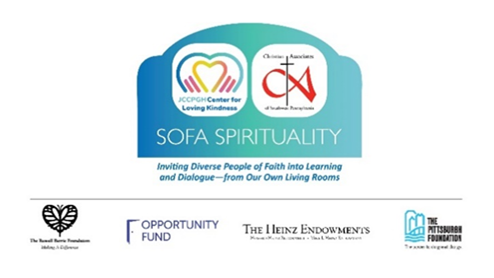
Come to Israel with Temple David!
March 14-24, 2022
Tell your family and friends!
The next meeting is Wednesday, October 13 at 7:30 p.m.
In-person and online at www.templedavid.org/athome
Find the itinerary and other information at
www.templedavid.org/israel2022
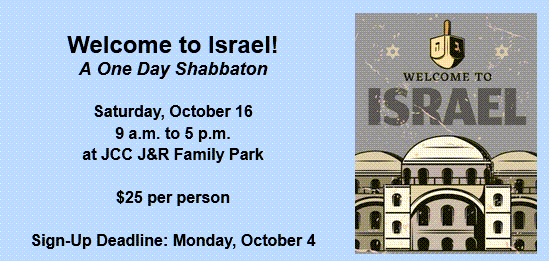
Join us for Temple David’s annual Shabbaton and make aliyah for a day at JCC J&R Family Park in Monroeville. We will focus on Israel through study, interactive activities, taste tests, and more. Join us for the full day of fun and learning or attend for particular sessions! A box lunch is included! Feel free to bring individually packaged snacks to share with your fellow travelers!
AGENDA:
9:00 a.m. Torah Talk*-Lech L’cha to Israel in the Torah
10:00 a.m. Shabbat Morning Service* followed by Kiddush
11:30 a.m. Israel Trivia Game
11:40 a.m. Israel: Still Wrestling with God: Non-separation of Synagogue and State
12:40 p.m. Lunch
1:15 p.m. Israeli Song Session
1:45 p.m. Israel: From the Inside Out-Knesset, Culture, Conflicts
2:45 p.m. Break (hike, games, chat, sing, nosh)
4:00 p.m. Israel: From the Outside In-The Life of a Diaspora Zionist from 70 CE to the Present
* Also on Zoom; see www.templedavid.org/athome for links
There will not be a Morning Service at Temple David.
There is no charge for those only attending Torah Talk and/or Morning Service.
Questions? Contact Sharon Saltzman at sharons@templedavid.org
Please see
www.templedavid.org/bulldocs/5782/shabbaton2021.pdf
for the registration form
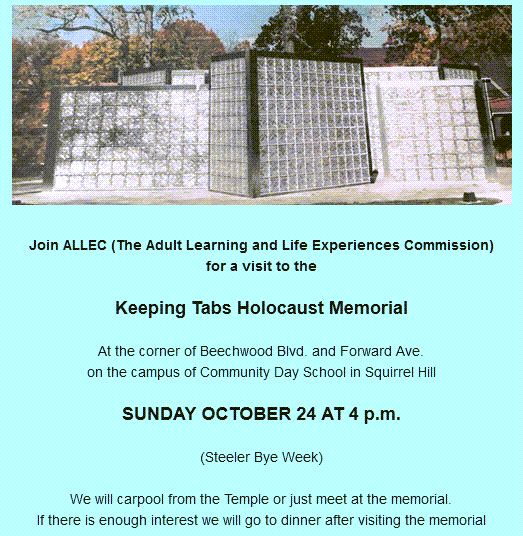
RSVP by October 17
to Carol and Bob Gordon
at carolg@templedavid.org
Added September 2021
Over the course of nine months, we will look at watershed moments in Jewish history—moments that were a turning point. Using texts, first-hand documentation, archeology, and poetry, our interactive sessions will include: Abraham’s Call, First and Second Temples, Dark Ages and the Light of Mystics, and Shoah to Statehood. Join us!
Register for either Sunday mornings (11:15 a.m.) or Wednesday evenings (7:30 p.m.)
and as long as there are at least 6 people enrolled per day,
if you have a conflict, you can switch to the other date that month.
In-Person and On Zoom
Fees: $36 for first person in a Temple-member household
$44 for first person in a non-member household
$11 per each additional person (member on non-member)
Questions? Please contact Rabbi Symons.
Click here for registration form:
www.templedavid.org/bulldocs/5782/2021watershed.pdf
Added August 2021
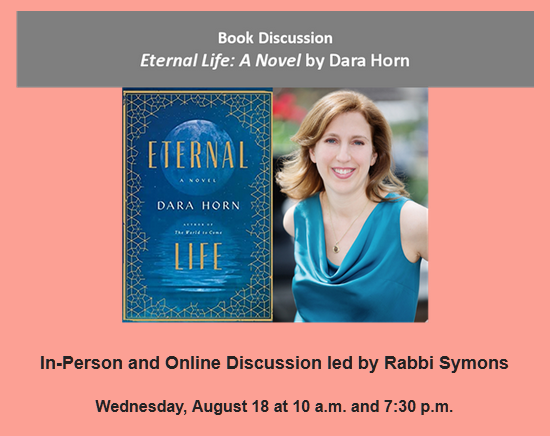
Please visit www.templedavid.org/athome for the links
“Horn does not hedge her bets, whipping up a Jewish telenovela of ancient-world drama and present-day complications. It’ll put you off immortality for good.”―Marion Winik, Newsday
From amazon.com: What would it really mean to live forever? Rachel is a woman with a problem: she can’t die. Her recent troubles―widowhood, a failing business, an unemployed middle-aged son―are only the latest in a litany spanning dozens of countries, scores of marriages, and hundreds of children. In the 2,000 years since she made a spiritual bargain to save the life of her first son back in Roman-occupied Jerusalem, she’s tried everything to free herself, and only one other person in the world understands: a man she once loved passionately, who has been stalking her through the centuries, convinced they belong together forever.
But as the twenty-first century begins and her children and grandchildren―consumed with immortality in their own ways, from the frontiers of digital currency to genetic engineering―develop new technologies that could change her fate and theirs, Rachel knows she must find a way out.
Gripping, hilarious, and profoundly moving, Eternal Life celebrates the bonds between generations, the power of faith, the purpose of death, and the reasons for being alive.
About the author: Dara Horn is the author of five novels and one of Granta’s Best Young American Novelists. She has taught Jewish literature at Harvard, Sarah Lawrence College, and Yeshiva University. She lives in New Jersey with her husband and four children.
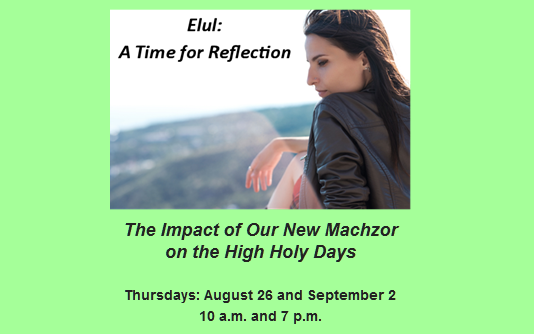
In-Person and On Zoom (www.is.gd/tdathome)
How does a machzor guide our High Holy Day experience?
Let’s take a look using our new machzor Mishkan HaNefesh.
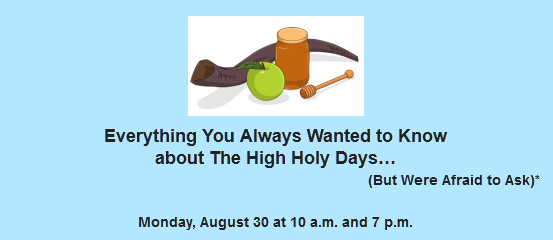
In-Person and On Zoom (www.is.gd/tdathome)
There are no dumb questions. Really. Together we will look at the texts, history, rituals, and creative celebrations of our holidays. For this session about the High Holy Days, let’s learn:
- How are Rosh HaShanah and Yom Kippur linked?
- Is the Book of Life mentioned in the Torah?
- Why do people wear white?
- What is a kittel?
- What can I do to make the High Holy Days more meaningful to me personally?
* With apologies to David Reuben, M.D.
Download registration form:
www.templedavid.org/bulldocs/5781/2021hhdclass.pdf
or e-mail tdoffice@templedavid.org
by Monday, August 23
Added July 2021
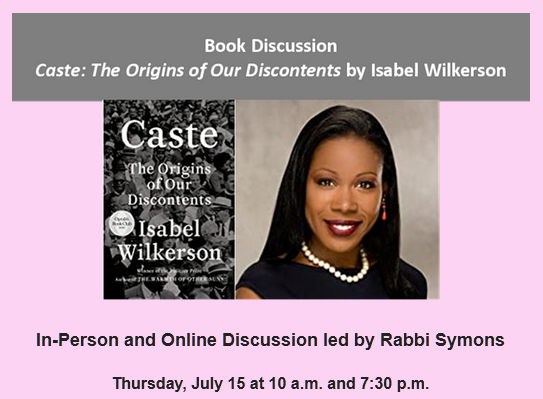
Please visit www.templedavid.org/athome for the links
Please call Monroeville Public Library to hold a copy (412-372-0500)
From amazon.com: In this brilliant book, Isabel Wilkerson gives us a masterful portrait of an unseen phenomenon in America as she explores, through an immersive, deeply researched narrative and stories about real people, how America today and throughout its history has been shaped by a hidden caste system, a rigid hierarchy of human rankings.
Beyond race, class, or other factors, there is a powerful caste system that influences people’s lives and behavior and the nation’s fate. Linking the caste systems of America, India, and Nazi Germany, Wilkerson explores eight pillars that underlie caste systems across civilizations, including divine will, bloodlines, stigma, and more. Using riveting stories about people—including Martin Luther King, Jr., baseball’s Satchel Paige, a single father and his toddler son, Wilkerson herself, and many others—she shows the ways that the insidious undertow of caste is experienced every day. She documents how the Nazis studied the racial systems in America to plan their out-cast of the Jews; she discusses why the cruel logic of caste requires that there be a bottom rung for those in the middle to measure themselves against; she writes about the surprising health costs of caste, in depression and life expectancy, and the effects of this hierarchy on our culture and politics. Finally, she points forward to ways America can move beyond the artificial and destructive separations of human divisions, toward hope in our common humanity.
Beautifully written, original, and revealing, Caste: The Origins of Our Discontents is an eye-opening story of people and history, and a reexamination of what lies under the surface of ordinary lives and of American life today.
About the author: Isabel Wilkerson, winner of the Pulitzer Prize and the National Humanities Medal, is the author the critically acclaimed New York Times bestsellers The Warmth of Other Suns, and Caste: The Origins of Our Discontents.
Wilkerson won the Pulitzer Prize for her work as Chicago Bureau Chief of The New York Times in 1994, making her the first black woman in the history of American journalism to win a Pulitzer and the first African-American to win for individual reporting. In 2016, President Barack Obama awarded her the National Humanities Medal for “championing the stories of an unsung history.”
Added June 2021
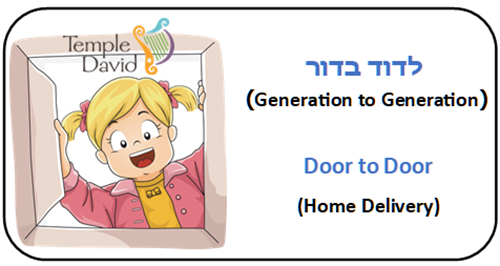
Grandparents and Grandchildren:
Step into an online Jewish world with Rabbi Symons through age-appropriate stories and activities, craft items that will arrive in the mail, and special family time.
- I See Stars
Up to Pre-K
Sunday, June 13 at 9:30 a.m.
Click here for details and to sign up
https://templedavid.org/bulldocs/5781/2021door.pdf
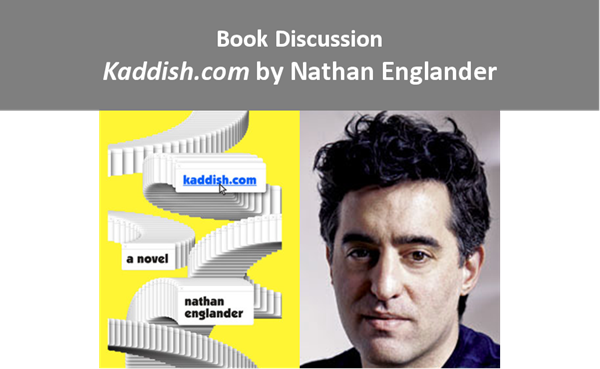
Online Discussion led by Mindy Norman
Wednesday, June 16 at 10 a.m. and 7:30 p.m.
Please visit www.templedavid.org/athome for the links
Books are available for pickup at Monroeville Public Library
(Call Pam at 412-372-0500)
“A rare blessing…a smart and witty novel…infused with delight.”—The Washington Post
“Satirical, inventive, and brimming with gallows humor, this novel’s whip-smart look at the clash of religious and secular worlds showcases Englander at his best.”—Esquire
“Ingenious.”—Houston Chronicle
From amazon.com: When his father dies, it falls to Larry—the secular son in a family of Orthodox Brooklyn Jews—to recite the Kaddish, the Jewish prayer for the dead, every day for eleven months. But to the horror and dismay of his sister, Larry refuses, imperiling the fate of his father’s soul.
To appease her, he hires a stranger through a website called kaddish.com to say the prayer instead—a decision that will have profound, and very personal, repercussions. Irreverent, hilarious, and wholly irresistible, Nathan Englander’s tale of a son who makes a diabolical compromise brilliantly captures the tensions between tradition and modernity.
About the author: Nathan Englander is the author of the story collections What We Talk About When We Talk About Anne Frank and the internationally bestselling story collection For the Relief of Unbearable Urges, as well as the novel The Ministry of Special Cases (all published by Knopf/Vintage).
His short fiction and essays have appeared in The New Yorker, The New York Times, The Atlantic Monthly, and The Washington Post, as well as The O. Henry Prize Stories and numerous editions of The Best American Short Stories.
Published May 2021
End of Year Celebration—and You’re Invited!
Outdoors on Sunday, May 2
10-11 a.m. Religious School Families Only
11 a.m.-12 p.m. All Are Invited*
- Balloon Animals for All Kids
- Free Book Exchange
- Driveway Chalk Art
- Arts and Crafts
- Israeli Dancing
- Juggler
- Snacks
BYOC—Bring Your Own Chairs
* In case of inclement weather, due to the need for social distancing,
we will move indoors and limit this event to Religious School Families Only
Come to One, Some, or All!
On Zoom at www.templedavid.org/athome
- May 6 – Responsibility/Humility: being proactive yet remaining humble
NOTE: 7:30 p.m. Only - May 13 – Awe: allowing ourselves to experience wonder
1. Mussar is the study of middot–fine tuning our character traits
2. The period of the Omer refers to an ancient grain offering between Pesach and Shavuot

Grandparents and Grandchildren:
Step into an online Jewish world with Rabbi Symons through age-appropriate stories and activities, craft items that will arrive in the mail, and special family time.
- Our Family Legacy
Grades 6-7
Saturday, May 8 at 8 p.m. - I See Stars
Up to Pre-K
Sunday, June 13 at 9:30 a.m.
Click here for details and to sign up
https://templedavid.org/bulldocs/5781/2021door.pdf
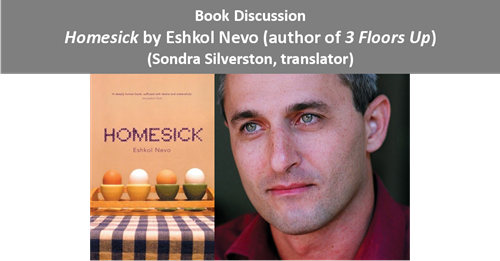
Online Discussion led by Rabbi Symons
Thursday, May 20 at 10 a.m. and 7:30 p.m.
Please visit www.templedavid.org/athome for the links
Books are available for pickup at the temple
(Mon., Wed., Fri. 10 a.m. to 2 p.m.)
“A deeply human book, suffused with desire and melancholy.”—Jerusalem Post
“Nevo has created an engrossing work…This is a compelling novel which I never wanted to end.”—Julia Pascal/The Independent)
“The novel’s heartfelt bass note is the beauty and difficulty of human relationships, evoked with sympathy and an ear for the nuances of different voices which is as playful as it is precise.”—Times Literary Supplement
“A warm, wise and sophisticated novel. I read it with much pleasure.”—Amos Oz, author of A Tale of Love and Darkness
From amazon.com: Shifting characters and perspectives, this multilayered novel looks at the lives of a handful of neighbors in the small Israeli town of Mevasseret. It’s 1995 and Amir, a college student studying psychology in Tel Aviv, and Noa, a photography student attending classes in Jerusalem, move together into a small apartment. A passionate couple, they nonetheless find themselves struggling to adjust to their new life in the same room. Their landlords, Sima and Moshe, share the thin walls in the apartment next door, and their marriage is tested when they disagree on the religious upbringing of their two young children. A few houses away, a family is devastated over the death of their eldest son. The neglected brother, Yotam, finds solace in a budding friendship with the introspective Amir. And there is the mysterious Arab construction worker determined to return to his childhood home after being displaced along with the village’s other Arab inhabitants in 1948. Nevo’s characters are diverse, yet their desires, histories, and interactions blend seamlessly to create an engrossing portrait of a restless community.
—Leah Strauss/Booklist
About the author: Eshkol Nevo was born in Jerusalem in 1971 and spent his childhood years in Israel and Detroit. He teaches creative writing at the Bezalel Academy of Art and Design, Tel Aviv University, Sapir College, and the Open University.
He has published a collection of short stories, a book of nonfiction, and two novels, both of which have been bestsellers in Israel.
Published April 2021
Come to One, Some, or All!
On Zoom at www.templedavid.org/athome
- April 1 – Enthusiasm: cultivating and applying positive energy
- April 8 – Equanimity: how to bring calmness to the soul
- April 15 – Patience: the tools we need to stay the course
- April 22 – Gratitude/Moderation: recognizing our abundant blessings
- April 29 – Integrity/Truth: being authentic in our thoughts and actions
- May 6 – Responsibility/Humility: being proactive yet remaining humble
- May 13 – Awe: allowing ourselves to experience wonder
1. Mussar is the study of middot–fine tuning our character traits
2. The period of the Omer refers to an ancient grain offering between Pesach and Shavuot

Grandparents and Grandchildren:
Step into an online Jewish world with Rabbi Symons through age-appropriate stories and activities, craft items that will arrive in the mail, and special family time.
- How to be a Better Me
Grades 3-5
Sunday, April 18 at 4 p.m. - Our Family Legacy
Grades 6-7
Saturday, May 8 at 8 p.m. - I See Stars
Up to Pre-K
Sunday, June 13 at 9:30 a.m.
Click here for details and to sign up
https://templedavid.org/bulldocs/5781/2021door.pdf
Published March 2021

Did the Exodus Really Happen
& Other Nagging Questions from the Seder
with Dr. Ben Sommer
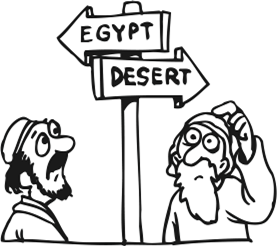
Wednesdays, March 10 and March 24 at 7:30 p.m.
www.templedavid.org/athome
Join us for this wonderful series with Dr. Ben Sommer of the Jewish Theological Seminary.
Jewish identity in the Shema and many other prayers is based on an event that is supposed to have happened more than three thousand years ago: we were liberated from slavery in Egypt. But were our ancestors and forebears from ancient Israel in fact enslaved there? Did they really escape that slavery to become a nation?
Professor Sommer will address textual, historical, and archaeological evidence to separate fact from fiction.
This is collaboration between Temple Ohav Shalom, Congregation Beth Shalom, Temple Emanuel, and Temple David.
Learning with Sefaria
Thursday, March 11 at 7 p.m.
www.templedavid.org/athome
We are the People of the Book, but how can we begin to navigate the vast network of Jewish literature?
Sefaria’s free living library of Jewish texts and their interconnections, in Hebrew and in translation, seeks to enable all Jews to appreciate our collective inheritance.
Join Temple David and Sefaria for an interactive one-hour session to view the fundamentals of using Sefaria to find pieces of Torah that speak to you.
With Passover just around the corner, you will learn tools to help prepare nuggets of wisdom to share at your upcoming seder.
Everything You Always Wanted to Know about Passover…
(But Were Afraid to Ask)*
Sunday, March 14 at 9:15 a.m.
www.templedavid.org/athome
There are no dumb questions. Really. Together we will look at the texts, history, rituals, and creative celebrations of our holidays. For this session about Passover, let’s learn:
- Why do some Jews celebrate for 7 days and others for 8?
- If leaven is forbidden, why can’t I eat rice or tofu?
- Why do some seder plates have 5 spaces and others have 6?
- What is the difference between various Haggadot (plural of Haggadah)?
- Why is there a focus on Elijah during the seder?
* With apologies to David Reuben, M.D.
The Synagogue Architecture of Eric Mendelsohn
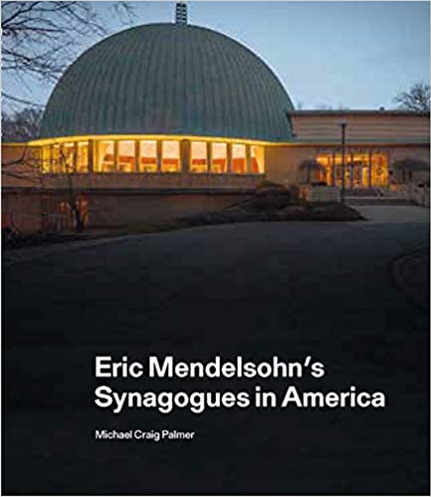
Sunday, March 7 at Noon
On Zoom at www.templedavid.org/athome
Join us for a virtual, socially distanced lunch as we listen to Michael Palmer discuss his book Eric Mendelsohn’s Synagogues in America.
Trained in Germany, Eric Mendelsohn received international acclaim for his designs; four synagogues he designed between 1946 and 1953 were built in the U.S.
Michael Palmer is a photographer whose work has explored the architectural legacy and relevance of the German Jewish exodus from Germany in the 1920s and 1930s. Mr. Palmer began his photography career in 2015 with the Tel Aviv White City project.

TWO TRIPS, ONE MEETING
Wednesday, March 17 at 7 p.m.
On Zoom at www.templedavid.org/athome

MY MEGA MISSION:
SYNAGOGUE & JEWISH AGENCY GROUP PROGRAM
- Participation in this mission requires a minimum commitment of $500 to the 2023 & 2024 Jewish Federation Community Campaigns.
- Spend nine days in Israel building stronger relationships with your friends & family!
- 9 Days/8 Nights
(2 nights in Tel Aviv, 2 in Karmiel/Misgav, 4 in Jerusalem including Shabbat) - One-of-a-kind experiences you can only have as part of a large mission trip!
- 5-Star Accommodations
- Includes Land Travel, Mission Activities, and Entrance Fees
(Airfare, incidentals, and upgrades not included) - Most meals included
- 9 memorable MEGA events!
- B’nai Mitzvah opportunity in the Old City—great for B’nai Mitzvah families!
- Subsidized pricing from the Federation with additional special pricing for families and young adults
QUESTIONS? CONTACT: Jordan Tal, Mega Missions Coordinator
at 412.992.5227 or jtal@jfedpgh.org
TEMPLE DAVID TRIP TO ISRAEL
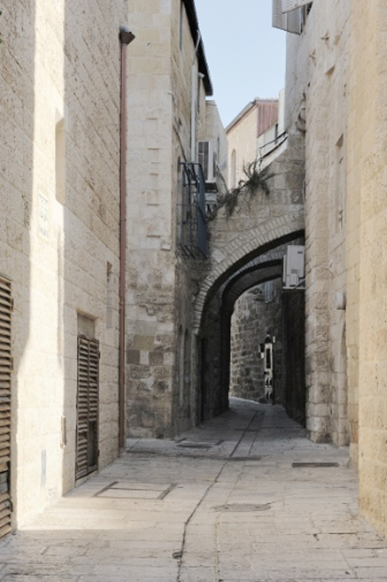 Let’s discuss how and when Temple David
Let’s discuss how and when Temple David
wishes to next travel to Israel:
- With Federation’s Mega Mission or on our own?
- Focused on first-timers?
- Single-track or multiple tracks?
- Seeing the whole country?
- Having optional extensions to Petra, Jordan?
Come and let’s plan together! Next year in Jerusalem!
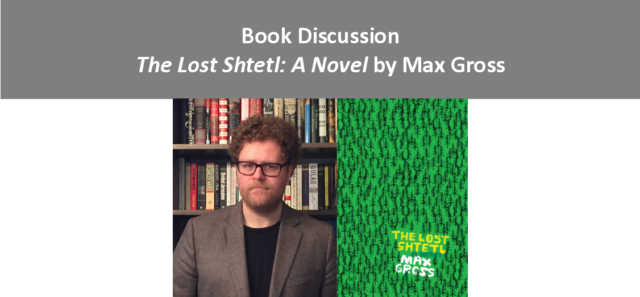
Online Discussion led by Rabbi Symons
Thursday, March 18 at 10 a.m. and 7:30 p.m.
Please visit www.templedavid.org/athome for the link
“I was blown away…The Lost Shtetl is a Jewish fantasy in the vein of Michael Chabon’s The Yiddish Policemen’s Union and Steve Stern’s Jewish magical realism novels. There are even echoes of Simon Rich’s New Yorker story, Sell Out, about a time-travelling Orthodox Jewish immigrant, soon to be the major motion picture An American Pickle starring, yes, Seth Rogen…The novel’s narrator, a kind of first-person collective, sounds both contemporary and folkloric, as if one of the great Yiddish writers had somehow survived, like Kreskol, to tell its story. The Lost Shtetl stands on its own.”—Jewish Week
From amazon.com: A remarkable debut novel—written with the fearless imagination of Michael Chabon and the piercing humor of Gary Shteyngart—about a small Jewish village in the Polish forest that is so secluded no one knows it exists…until now.
What if there was a town that history missed?
For decades, the tiny Jewish shtetl of Kreskol existed in happy isolation, virtually untouched and unchanged. Spared by the Holocaust and the Cold War, its residents enjoyed remarkable peace. It missed out on cars, and electricity, and the internet, and indoor plumbing. But when a marriage dispute spins out of control, the whole town comes crashing into the twenty-first century.
Pesha Lindauer, who has just suffered an ugly, acrimonious divorce, suddenly disappears. A day later, her husband goes after her, setting off a panic among the town elders. They send a woefully unprepared outcast named Yankel Lewinkopf out into the wider world to alert the Polish authorities.
Venturing beyond the remote safety of Kreskol, Yankel is confronted by the beauty and the ravages of the modern-day outside world–and his reception is met with a confusing mix of disbelief, condescension, and unexpected kindness. When the truth eventually surfaces, his story and the existence of Kreskol make headlines nationwide.
Returning Yankel to Kreskol, the Polish government plans to reintegrate the town that time forgot. Yet in doing so, the devious origins of its disappearance come to the light. And what has become of the mystery of Pesha and her former husband? Divided between those embracing change and those clinging to its old world ways, the people of Kreskol will have to find a way to come together…or risk their village disappearing for good.
About the author: Max Gross was born in New York City and graduated from Dartmouth College. He wrote for the Forward newspaper and the New York Post and is currently the editor of the Commercial Observer.
His first book was a memoir called From Schlub to Stud. He lives in New York with his wife and son. The Lost Shtetl is his first novel.
Published January 2021
Second part only published in February 2021

As our entire Weiger Religious School studies the life cycle,
you are invited to join them!
We will answer your questions as well as:
- What does Judaism say about abortion? In-vitro fertilization?
- Does a non-Jewish adopted child have to convert to be Jewish?
- Is an interfaith ketubah kosher?
- Can a Jew say Kaddish for a non-Jewish relative?
- Can interfaith spouses be buried together?
- Can a Jew be cremated?
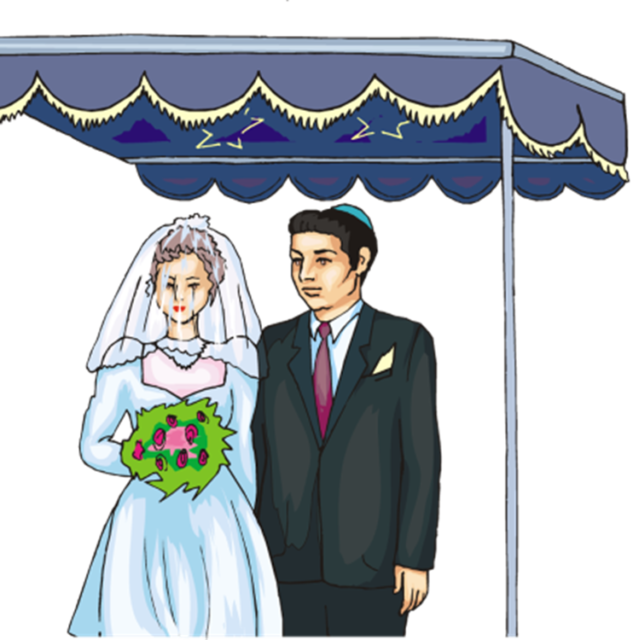
Come to One (or Both!)
at www.templedavid.org/athome

Online Discussion led by Rabbi Symons
Thursday, January 14 at 10 a.m. and 7:30 p.m.
Please visit www.templedavid.org/athome for the link
“Rabinyan’s book is a sort of Romeo and Juliet, a forbidden love affair between a Jewish girl from Tel Aviv and a Palestinian boy from Hebron… [A] beautiful novel.”—The Guardian
From amazon.com: A controversial, award-winning story about the passionate but untenable affair between an Israeli woman and a Palestinian man, from one of Israel’s most acclaimed novelists
When Liat meets Hilmi on a blustery autumn afternoon in Greenwich Village, she finds herself unwillingly drawn to him. Charismatic and handsome, Hilmi is a talented young artist from Palestine. Liat, an aspiring translation student, plans to return to Israel the following summer. Despite knowing that their love can be only temporary, that it can exist only away from their conflicted homeland, Liat lets herself be enraptured by Hilmi: by his lively imagination, by his beautiful hands and wise eyes, by his sweetness and devotion.
Together they explore the city, sharing laughs and fantasies and pangs of homesickness. But the unfettered joy they awaken in each other cannot overcome the guilt Liat feels for hiding him from her family in Israel and her Jewish friends in New York. As her departure date looms and her love for Hilmi deepens, Liat must decide whether she is willing to risk alienating her family, her community, and her sense of self for the love of one man.
Banned from classrooms by Israel’s Ministry of Education, Dorit Rabinyan’s remarkable novel contains multitudes. A bold portrayal of the strains—and delights—of a forbidden relationship, All the Rivers (published in Israel as Borderlife) is a love story and a war story, a New York story and a Middle East story, an unflinching foray into the forces that bind us and divide us. “The land is the same land,” Hilmi reminds Liat. “In the end all the rivers flow into the same sea.”
About the author: Dorit Rabinyan is the bestselling author of the acclaimed Persian Brides and Strand of a Thousand Pearls. She is the recipient of the Itzhak Vinner Prize, the Prime Minister’s Prize, an ACUM award, and the Jewish Quarterly–Wingate Prize.
All the Rivers, originally published as Borderlife, was named as a book of the year by Haaretz and awarded the prestigious Bernstein Prize. In January 2016 it became the center of a political scandal in Israel when the Ministry of Education banned the book from the high school curriculum. All the Rivers has been translated into seventeen languages.
Everything You Always Wanted to Know about Tu BiSh’vat…
(But Were Afraid to Ask)*

Sunday, January 24 at 9:15 a.m.
www.templedavid.org/athome
There are no dumb questions. Really. Together we will look at the texts, history, rituals, and creative celebrations of our holidays. For this session about the Tu BiSh’vat, let’s learn:
- Why is Tu BiSh’vat a New Year?
- How is Tu BiSh’vat a name and a date at the same time?
- Why is there a seder on Tu BiSh’vat; shouldn’t it only be for Passover?
- Are there special foods we should eat or would any fruit, vegetable, or grain do?
- Why are there different blessings for each category of food?
* With apologies to David Reuben, M.D.
Published November 2020
Join us for Shabbaton, a day of remote worship and learning via Zoom.
During the Shabbaton, we will have a Shabbat morning service,
followed by four different sessions separated by breaks to get up and stretch.
Each session will focus on the prophet Elijah from different perspectives,
from what the Bible says about him to what he says to us today.
At 3:30, Elisa Beck will teach Gentle Yoga–a specially-designed class
for seniors and for those who haven’t tried yoga before.
$25 per Household

9:00 a.m. Torah Study (open to all)
9:45 a.m. Worship (open to all)Shabbat
10:45 a.m. Study Session
11:45 a.m. Break/Lunch
1:00 p.m. Study Session
2:00 p.m. Break
2:15 p.m. Study Session
3:15 p.m. Break
3:30 p.m. Gentle Yoga
4:00 p.m. Study Session
5:45 p.m. Havdalah in the Temple Parking Lot (Live and Online; open to all)
The links for the open portions will be posted at
www.templedavid.org/athome.
The links for the paid portions
will be sent to those who’ve registered.
Click here for the registration form
The deadline is Sunday, November 1
Questions? Please contact Bruce Antonoff
at brucea@templedavid.org
Published October 2020
Study
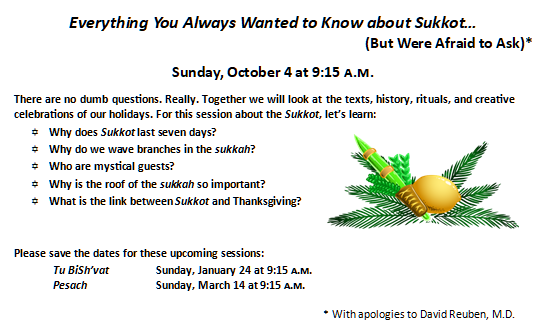
Visit www.templedavid.org/athome for the link
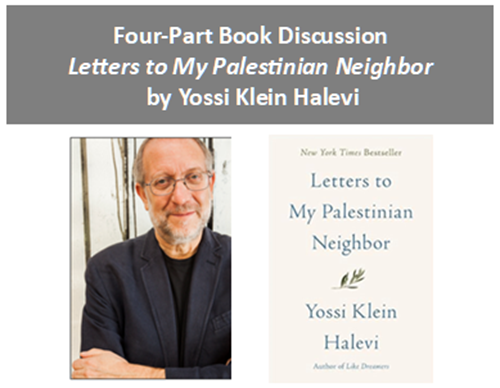
Discussion led by Rabbi Symons
Thursdays, October 29 and November 5, 12, and 19,
at 10 a.m. and 7 p.m.
Visit www.templedavid.org/athome for the links
“One of the best one-volume introductions to the conflict between Israel and the Palestinians”—The Atlantic
“A clarion call, not to arms but to empathy”—The Wall Street Journal
This is a must-read. And a must-discuss. We will discuss 1-2 chapters per session.
“I don’t believe that peace without at least some attempt at mutual understanding can endure.” So writes Yossi Klein Halevi, a wonderful Israeli author and my friend, in his new book, Letters to My Palestinian Neighbor.
From the Back Cover: “Lyrical and evocative, Letters to My Palestinian Neighbor is one Israeli’s powerful attempt to reach beyond the wall that separates Israelis and Palestinians. In a series of letters, Yossi Klein Halevi endeavors to untangle the ideological and emotional knot that has defined the Israeli-Palestinian conflict for nearly a century. Using history and personal experience as his guides, he unravels the complex strands of faith, pride, anger, and anguish he feels as a Jew living in Israel.
In an unprecedented effort to share both sides of this terrible struggle, this new edition includes an extensive Epilogue of Palestinian letters to Halevi. Some angry, some empathetic, but all respectful, these responses break open the conversation between Israelis and Palestinians, laying bare the heartfelt emotion on both sides and showing that peace may be possible if one is only willing to listen.
Speaking to all concerned global citizens, this provocative collection of letters from each side of the conflict models the kind of passionate, respectful discourse that is sorely missing in the world today, and helps us understand the painful choices confronting Israelis and Palestinians that will ultimately determine the fate of the region.”
About the Author (amazon.com): “Yossi Klein Halevi is an American-born writer who has lived in Jerusalem since 1982. He is a senior fellow of the Shalom Hartman Institute in Jerusalem and the author of At the Entrance to the Garden of Eden: A Jew’s Search for God with Christians and Muslims in the Holy Land and Like Dreamers: The Story of the Israeli Paratroopers Who Reunited Jerusalem and Divided a Nation, which won the Jewish Book Council’s Everett Family Book of the Year Award for Best Jewish Book in 2013. Together with Imam Abdullah Antelpi of Duke University, he co-directs the Hartman Institute’s Muslim Leadership Initiative. He and his wife, Sarah, have three children.”
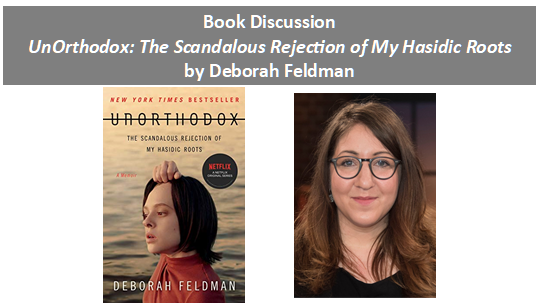
Discussion led by Rabbi Symons
Thursday, October 22 at 7 p.m.
Visit www.templedavid.org/athome for the link
“A sensitive and memorable coming-of-age story…Imagine Frank McCourt as a Jewish virgin, and you’ve got Unorthodox in a nutshell.”—Pittsburgh Post-Gazette
“A brave, riveting account…Unorthodox is harrowing, yet triumphant.”—Jeannette Walls, New York Times bestselling author of The Glass Castle
“Compulsively readable, Unorthodox relates a unique coming-of-age story that manages to speak personally to anyone who has ever felt like an outsider in her own life.”—School Library Journal
“[Feldman’s] matter-of-fact style masks some penetrating insights.”—The New York Times
“Eloquent, appealing, and just emotional enough…No doubt girls all over Brooklyn are buying this book, hiding it under their mattresses, reading it after lights out—and contemplating, perhaps for the first time, their own escape.”—The Huffington Post
“Riveting…extraordinary.”—Marie Claire
From amazon.com: Unorthodox is the bestselling memoir of a young Jewish woman’s escape from a religious sect, in the tradition of Ayaan Hirsi Ali’s Infidel and Carolyn Jessop’s Escape, featuring a new epilogue by the author.
As a member of the strictly religious Satmar sect of Hasidic Judaism, Deborah Feldman grew up under a code of relentlessly enforced customs governing everything from what she could wear and to whom she could speak to what she was allowed to read.
Yet in spite of her repressive upbringing, Deborah grew into an independent-minded young woman whose stolen moments reading about the empowered literary characters of Jane Austen and Louisa May Alcott helped her to imagine an alternative way of life among the skyscrapers of Manhattan.
Trapped as a teenager in a sexually and emotionally dysfunctional marriage to a man she barely knew, the tension between Deborah’s desires and her responsibilities as a good Satmar girl grew more explosive until she gave birth at nineteen and realized that, regardless of the obstacles, she would have to forge a path—for herself and her son—to happiness and freedom.
Published September 2020
Temple David Forms New Discussion Group
“First Wednesday”
Begins Wednesday, September 2
In response to everyone social distancing to one degree or another Temple David has formed a new group for adult discussion of interesting contemporary topics.
There are no dues and no assignments. All you have to bring is your intellect and curiosity.
Put away your remote, turn off Jeopardy, and please join your host, Jeff Baldel on the First Wednesday of each month at 7 p.m. on Zoom at www.templedavid.org/athome.
First Topic (September 2): Bari Weiss, Pittsburgh native, whose father Lou was a guest speaker at Temple David last year, and whose book was recently reviewed by Rabbi Symons, resigns from The New York Times.
See her letter here: https://www.bariweiss.com/resignation-letter
Let’s discuss.

Reform Judaism has long called itself “Prophetic Judaism” yet the haftarah is the primary place we encounter the prophets other than a well known phrase such as “What is it that G-d desires of you but to do justly and to love mercy, and to walk humbly with your G-d” (Micah 6:8). The Haftarah is ten or more verses from the Prophets (N’vi-im) section of the Hebrew Bible that links either with the Torah portion or with the holiday cycle. Yet if you are not at Shabbat or Festival worship, or even if you are and no context is given, the prophets remain a mystery to us. As Rabbi Abraham Joshua Heschel writes in his book The Prophets, “The prophet is not only a prophet. He is also poet, preacher, patriot, statesman, social critic, moralist.”
Join this class and together we will get to meet the prophets.
Register for either Sunday mornings (11:30 a.m.) or Wednesday evenings (7 p.m.)
and as long as there are at least 6 people enrolled per day,
if you have a conflict, you can switch to the other date that month.
Sundays at 11:30 a.m.:
09/13, 10/18, 11/08, 12/13, 01/10/2021, 02/14, 03/14, 04/11, 05/02
Wednesdays at 7 p.m.:
09/16, 10/21, 11/11, 12/16, 01/13/2021, 02/17, 03/10, 04/14, 05/05
Fee: $36 for first person in a household; $11 per each additional person.
Questions? Please contact Rabbi Symons.
Published August 2020

Everything You Always Wanted to Know about The High Holy Days…
(But Were Afraid to Ask)*
Sunday, August 23 at 10 a.m.
There are no dumb questions. Really. Together we will look at the texts, history, rituals, and creative celebrations of our holidays. For this session about the High Holy Days, let’s learn:
- What is the difference between The Ten Days of Awe and The Ten Days of Repentance?
- How is a machzor (High Holy Day prayer book) different from a regular prayer book?
- Why is the shofar sounded on Rosh HaShanah? When else is it sounded?
- Why do some Jews wear white on the High Holy Days?
- Why does the evening Yom Kippur service have the name Kol Nidre?
- Why do some Jews wear a tallit on Kol Nidre given that they are only worn in the morning?
- Why don’t some Jews wear leather shoes or belts on Yom Kippur?
- What is Selichot?
* With apologies to David Reuben, M.D.
Click here for the sign-up form
Published May 2020

Online Everything You Always Wanted to Know about Shavuot…
(But Were Afraid to Ask)*
Wednesday, May 20 at 10 a.m.
Visit www.templedavid.org/athomefor the link.
There are no dumb questions. Really. Together we will look at the texts, history, rituals, and creative celebrations of our holidays. For this session about Shavuot, let’s learn:
- Is it true that Shavuot isn’t in the Torah?
- Why do we read the 10 Commandments?
- Why is Confirmation on Shavuot?
- How did eating cheese get associated with Shavuot?
- Why do some people stay up all night studying?
* With apologies to David Reuben, M.D.
—————————————————————–
CITY-WIDE STUDY: ONLINE via ZOOM
on Wednesday, May 27
Sessions from 9-10 p.m., 10-11 p.m., and 11 p.m.-12 a.m.
Join the Jewish Federation of Greater Pittsburgh and Rabbis from around Jewish Pittsburgh on May 27 for a night of meaningful and fun virtual learning.
There will be 23 separate learning sessions, focusing on many topics, within three time slots.
Registration and a schedule of the classes will be available on our website very soon:
www.jewishpgh.org/event/tikkun-leil-shavuot-2
Online Tikkun Leil Shavuot
Thursday, May 28 at 9 p.m.
Why is #10 (Do Not Covet) the Most Important

It is a mitzvah to study into the night after evening services on Shavuot. On Thursday, May 28, Rabbi Barbara Symons will lead a study session on the importance of the Tenth Commandment-Do Not Covet.
Visit www.templedavid.org/athome for the link
Published March 2020
Book Review: The Haunted Smile
by Lawrence J. Epstein
Thursday, March 12 at 7 p.m.
Monroeville Public Library
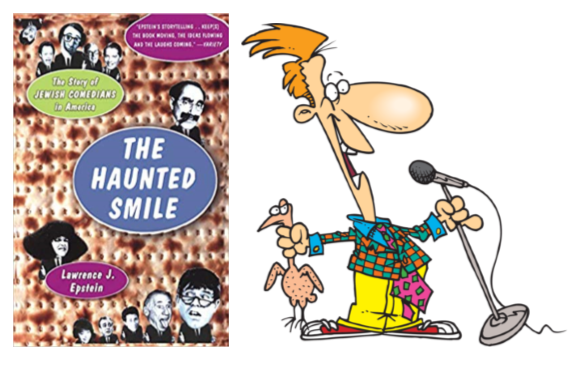
Temple David member Skip Davis will review the book The Haunted Smile: The Story of Jewish Comedians in America, by Lawrence J. Epstein.
Skip is a stand-up comedian and will perform Jewish Humor from Woody Allen, Myron Cohen, Rodney Dangerfield, and many other Jewish Comedians.
Everything You Always Wanted to Know about Pesach…
(But Were Afraid to Ask)*

Wednesday, April 1 at 10 a.m. or 7 p.m.
There are no dumb questions. Really. Together we will look at the texts, history, rituals, and creative celebrations of our holidays. For this session about Pesach, let’s learn:
- Why do some people eat rice while others don’t?
- What is the seder really about?
- Why is the number 4 so prevalent in the seder
(4 questions, 4 sons, 4 expressions of redemption, 4 cups of wine )? - Why do some people keep 7 days while others keep 8?
- What is a Miriam’s Cup and what’s it filled with?
There’s one additional classes holiday class this year: Shavuot May 20
* With apologies to David Reuben, M.D.
Click for RSVP Form
Deadline is Friday, March 27
Published February 2020

